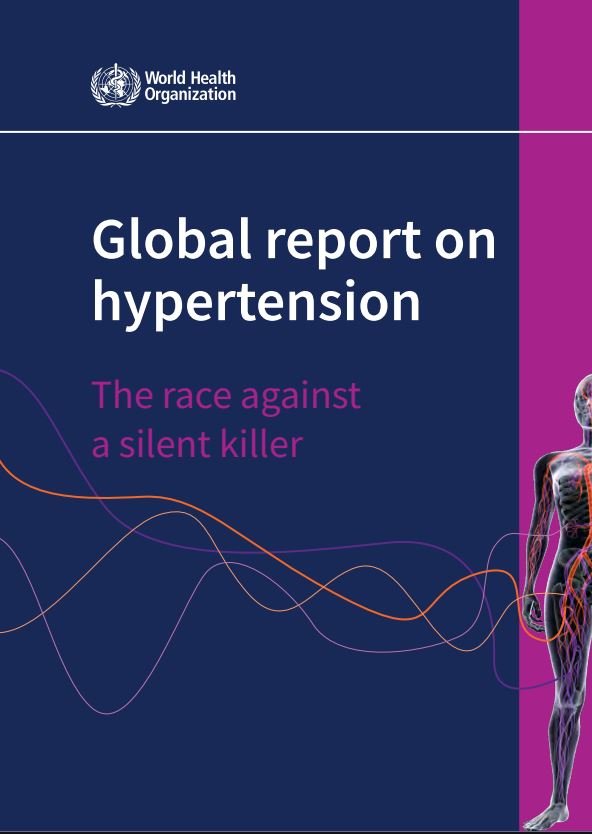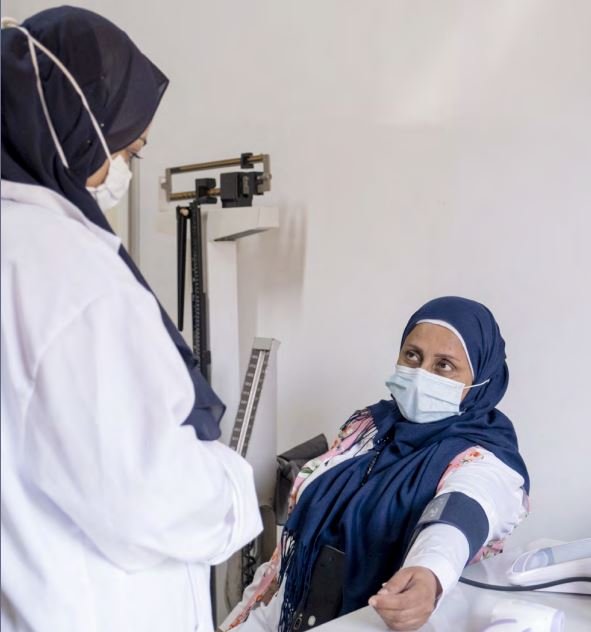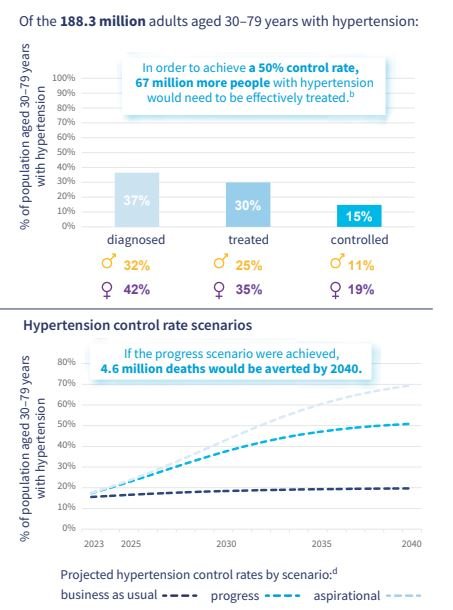The World Health Organization (WHO) released its first-ever report on the devastating global impact of high blood pressure. The report shows approximately 4 out of every 5 people with hypertension are not adequately treated. But 76 million deaths could be averted between 2023 and 2050 if countries can scale up coverage.

Hypertension affects one-third of adults worldwide. It leads to stroke, heart attack, heart failure, kidney damage and many other health problems. The number of people living with blood pressure doubled between 1990 and 2019, from 650 million to 1.3 billion. Nearly half of people with hypertension globally are currently unaware of their condition. More than three-quarters of adults with high blood pressure live in low- and middle-income countries.
Older age and genetics can increase the risk of having high blood pressure. Eating a high-salt diet, not being physically active and drinking too much alcohol can also increase the risk of hypertension.
Lifestyle changes like eating a healthier diet, quitting tobacco and being more active can help lower blood pressure. Some people may need medicines that can control hypertension effectively and prevent related complications. The economic benefits of improved hypertension treatment programmes outweigh the costs by about 18 to 1.

Better hypertension control can help avert 4.6 million deaths in India
At least 4.6 million deaths in India will be preventable by 2040 if half its hypertensive population controls its blood pressure. It estimates that 31 per cent of the country’s population or 188.3 million people are living with the condition currently.

Only 37 per cent of Indians with hypertension are diagnosed and only 30 per cent get treated. At present, only 15 per cent of those with hypertension in the country have it under control, the report says. In fact, it adds, more than half of all the deaths in the country (52 per cent) due to cardiovascular diseases such as heart attack are due to elevated blood pressure.
An increase in the number of patients effectively treated for hypertension to levels observed in high-performing countries could prevent 76 million deaths, 120 million strokes, 79 million heart attacks, and 17 million cases of heart failure between now and 2050.







